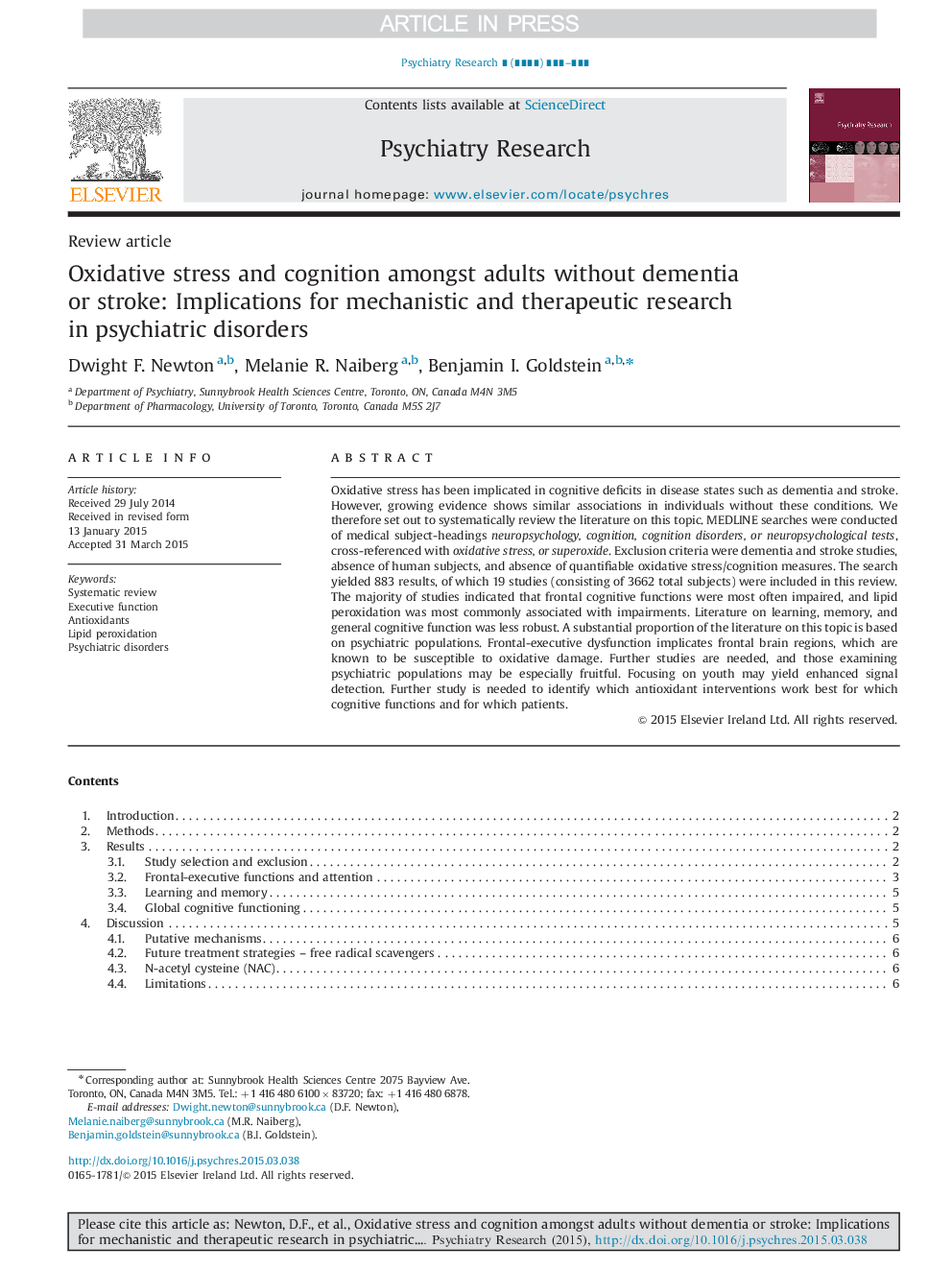| Article ID | Journal | Published Year | Pages | File Type |
|---|---|---|---|---|
| 6814008 | Psychiatry Research | 2015 | 8 Pages |
Abstract
Oxidative stress has been implicated in cognitive deficits in disease states such as dementia and stroke. However, growing evidence shows similar associations in individuals without these conditions. We therefore set out to systematically review the literature on this topic. MEDLINE searches were conducted of medical subject-headings neuropsychology, cognition, cognition disorders, or neuropsychological tests, cross-referenced with oxidative stress, or superoxide. Exclusion criteria were dementia and stroke studies, absence of human subjects, and absence of quantifiable oxidative stress/cognition measures. The search yielded 883 results, of which 19 studies (consisting of 3662 total subjects) were included in this review. The majority of studies indicated that frontal cognitive functions were most often impaired, and lipid peroxidation was most commonly associated with impairments. Literature on learning, memory, and general cognitive function was less robust. A substantial proportion of the literature on this topic is based on psychiatric populations. Frontal-executive dysfunction implicates frontal brain regions, which are known to be susceptible to oxidative damage. Further studies are needed, and those examining psychiatric populations may be especially fruitful. Focusing on youth may yield enhanced signal detection. Further study is needed to identify which antioxidant interventions work best for which cognitive functions and for which patients.
Related Topics
Life Sciences
Neuroscience
Biological Psychiatry
Authors
Dwight F. Newton, Melanie R. Naiberg, Benjamin I. Goldstein,
